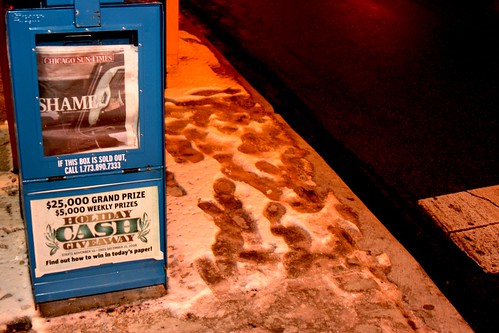 Clay Shirky
Clay Shirky, who teaches at the Interactive Telecommunications program at New York University and is the author of "Here Comes Everybody, says
not to worry about information overload. "You know, “Life was better when I was younger” is always an acceptable narrative. Right? And so for anybody who was brought up genuflecting to the literary culture and the virtues of reading Tolstoy—and essentially Tolstoy is a trope in these things, War and Peace is the longest novel in the sort of Euro-centric canon—you could always make the argument that the present is worse than the past by simply pointing to the virtues of the past. And so, what the Web does is that it does what all amateur increases do, which is it decreases the average quality of what’s available. It is exactly, precisely, the complaint made about the printing press. So, the only thing surprising about the Web, in a way, is that it’s been a long time since we’ve had a medium that increased the amount of production of written material this dramatically... [P]eople made the same complaint about comic books, they made the same complaint about paperbacks, and they made the same complaint about the vulgarity of the printing press. Whenever you let more people in, things get vulgar by definition. And people who benefited under the old system or who dislike or distrust vulgarity as a process always have room to complain. But, the interesting thing is, when you say so many people believe this, in fact almost no one believes this, right? There’s a tiny, tiny slice of the chattering classes for whom “Life was better when I was younger” is an acceptable complaint to make, and they have these little conferences or whatever and agree with one another about that phenomenon. But when you look at the actual use of the Web, it is through the roof. And it has continued in an unbroken growth from the early ’90s until now. So, in fact, almost everybody thinks it’s a good idea because they’re embracing it and they’re experimenting with it and they don’t really care what we think. And when I say “we,” I mean—I am a member of the Chardonnay-swilling East Coast liberal media elite. But I also recognize that anything I might have to say about the utility of the media actually isn’t going to influence whether or not people are going to adopt this. And so once you get out of the idea that basically the previous avatars of the cultural good, and the world that George W.S. Trow chronicled so beautifully 'Within the Context of No Contex't—once you grasp that those people are powerless to that effect, powerless with regard to the adoption curve—the question really becomes, “How do you point out an effect where something has been damaged?” And that’s where I think a lot of this conversation about reading breaks down, because if you assume that reading Tolstoy is an a priori good, your world crumbled in 1970. And it’s hard to point to the Web as responsible for any of that because that was a done deal for some time. If you want to point to more proximate harms, it would be very hard to argue, for example, that innovation, inventiveness, new intellectual discoveries had slowed as a result of the Internet, and so people are left with these kind of mealy-mouth cultural critiques, because
nostalgia becomes the only bulwark against change. The actual effects of making more information available to more people have been enormously beneficial to society, yet not to the intellectual gatekeepers in the generation in which that change happened."





















